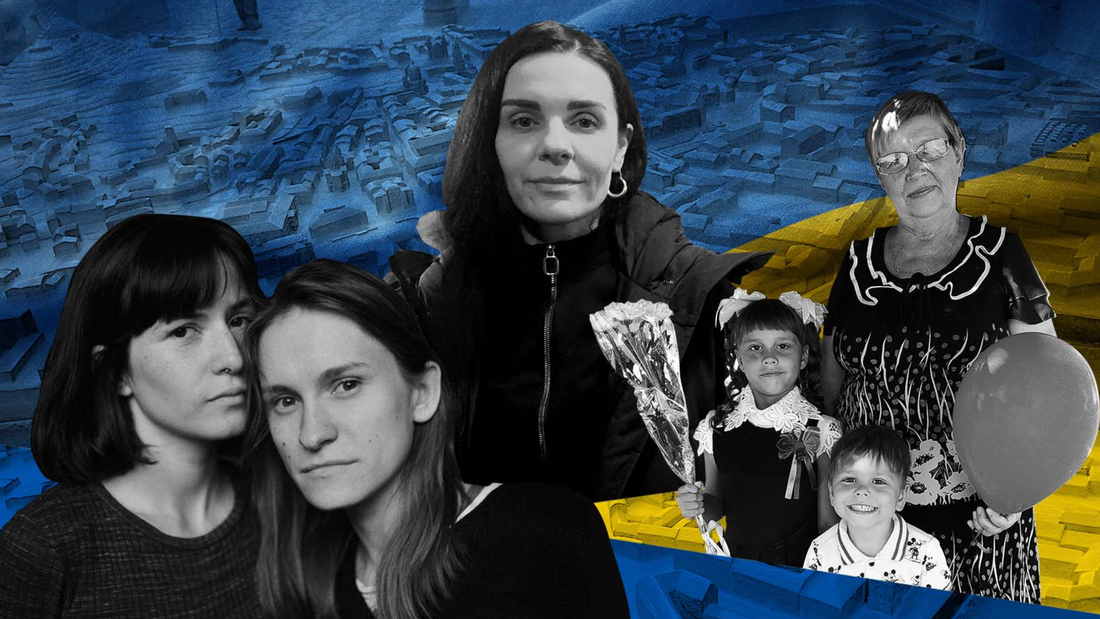'Please stay strong' For loved ones ripped apart by war in Ukraine, phone messages bring hope and despair

Lviv, Ukraine —
In the midst of a days-long, chaotic cross-country train ride to the
northwestern city of Lviv, near Ukraine's border with Poland, a terrible
realization dawned on Marina.
The
54-year-old carer, who managed to evacuate an orphanage in a besieged
industrial town in the eastern Luhansk province, had no way to return to
her own family.
Marina,
who did not give her surname, was still reeling from the journey --
days spent desperately trying to calm the panic-stricken children in her
care against the backdrop of booms and thuds of Russia's brutal assault, while still fearing for her family at home.
"And
now I am all alone," Marina told CNN from a daycare
center-turned-shelter in Lviv, where she and the children from her
orphanage were camped out. "I have left my own (adult) children to save
the children in the orphanage."
CNN is not disclosing Marina's full name because of the risks to her family who have not been evacuated.
The
fracturing of families underpins many of the stories of displacement in
Ukraine, where Russia's violent attempts to wrest control of territory
in the country's east, south and center from Ukrainian authorities have leveled entire neighborhoods.
Millions
of people are still trapped in besieged cities with virtually no way
out. Establishing evacuation corridors out of hard-hit urban centers is
proving elusive due to incessant violations of temporary ceasefires.
Without safe passage, families are being ripped apart.
Several
people CNN spoke to in recent days said they have been unable to
contact their loved ones since the start of the invasion. They described
frenzied escapes from the country's worst-affected cities, in which
parents, spouses, siblings and grandparents were left behind.
With
the Russian assault knocking out power and telephone networks, whole
cities have been cut off from the outside world. Many say they don't
know if their loved ones are still alive.
"I
don't understand why the government didn't try to evacuate us before
the invasion started. I don't want to blame them. Still I can't help but
think my predicament could have been avoided," Marina added.
Frantic attempts to reconnect with family
Once
a tourist hotspot, Lviv is now ground zero for around 200,000 displaced
Ukrainians who have flooded the city in search of relative safety.
Several theaters and schools converted into makeshift shelters are now
covered in mattresses for displaced people. Streets are clogged with
traffic. Around nearly every corner people can be heard making teary
phone calls to loved ones who stayed behind in war-ravaged areas.
Isabel
Merkulova, 31, is a theater performer. These days she sits nervously by
her phone, consumed with thoughts of her best friend Anastasiya
Lisovska, who is trapped in Hostomel, north of Kyiv. The town has
emerged as a key battleground in the war and has witnessed some of its
most dramatic scenes -- including a showdown at an airport and the
killing of its mayor.
Anastasiya
trekked to Hostomel from the Ukrainian capital shortly after Russia's
invasion began in a bid to persuade her uncle to flee. By the time he
came around, Russian forces had already laid siege to the city. At the
time, she spoke defiantly about venturing over to her uncle's house as
bombs rained down. She even entertained thoughts of joining the
resistance. But fear quickly crept in.
The
dripfeed of text messages from Anastasiya lighting up Isabel's phone --
punctuated by silences fueled by power shortages and telecommunication
blackouts -- reveal the terrifying uncertainty wracking separated
friends and family, who have no idea whether they might see each other
again.




No comments